Dishwashers are among the most helpful home appliances because of the time and effort they save us. Still, they have a limited life and are susceptible to wear and tear just like any other appliance. Replacing a dishwasher before its time can be annoying, especially if the problem could have been avoided. So, if there’s anything you can do to extend the lifespan of your dishwasher, you should do it!
Follow these guidelines to extend the life of your dishwasher:
- Clean the dishwasher
- Inspect the gasket after each use
- Use the correct type of detergent
- Load the dishwasher properly
- Check for debris on the heating coils
- Use the dishwasher up to 5 times a week
In this guide, I’ll elaborate on the points listed above, as well as explain how long the average dishwasher should last and the tell-tale signs of a dishwasher past its prime.
How to Extend the Life of Your Dishwasher
While I’ve already spoken about dishwasher maintenance in my guide on Dishwasher Maintenance Checklist, today, we’ll focus specifically on what you can do to keep your dishwasher reliable for longer.
1. Clean the dishwasher once a week
It goes without saying dishwashers get dirty. After all, you load dirty dishes into them, and like magic, the dishes come out. The filth has to go somewhere, and that somewhere is usually in the corners or the base of the tub.
Cleaning the dishwasher can be done in 4 easy steps:
- Remove the dishracks and utensil basket
- Rinse the filter assembly
- Remove food particles from the spray arms
- Use a cleaning solution to wash the tub
In addition, you should also do your best to clean the dishwasher’s exterior. That way, dirt, grime, and dust won’t creep into hard-to-reach places and possibly gum up the dishwasher’s inner workings.
2. Inspect the gasket after each use
The gasket is the silicone lining along the perimeter of the dishwasher door. Its main job is to ensure water doesn’t exit the tub and end up on your precious floors. If the gasket becomes cracked, possibly due to not using the dishwasher frequently enough, it will be impossible to keep the water inside the tub.
So, after each use, check the gasket and make sure it’s in working order. You should also wipe down the gasket to get rid of any debris residing in its folds.
3. Use the correct type of detergent
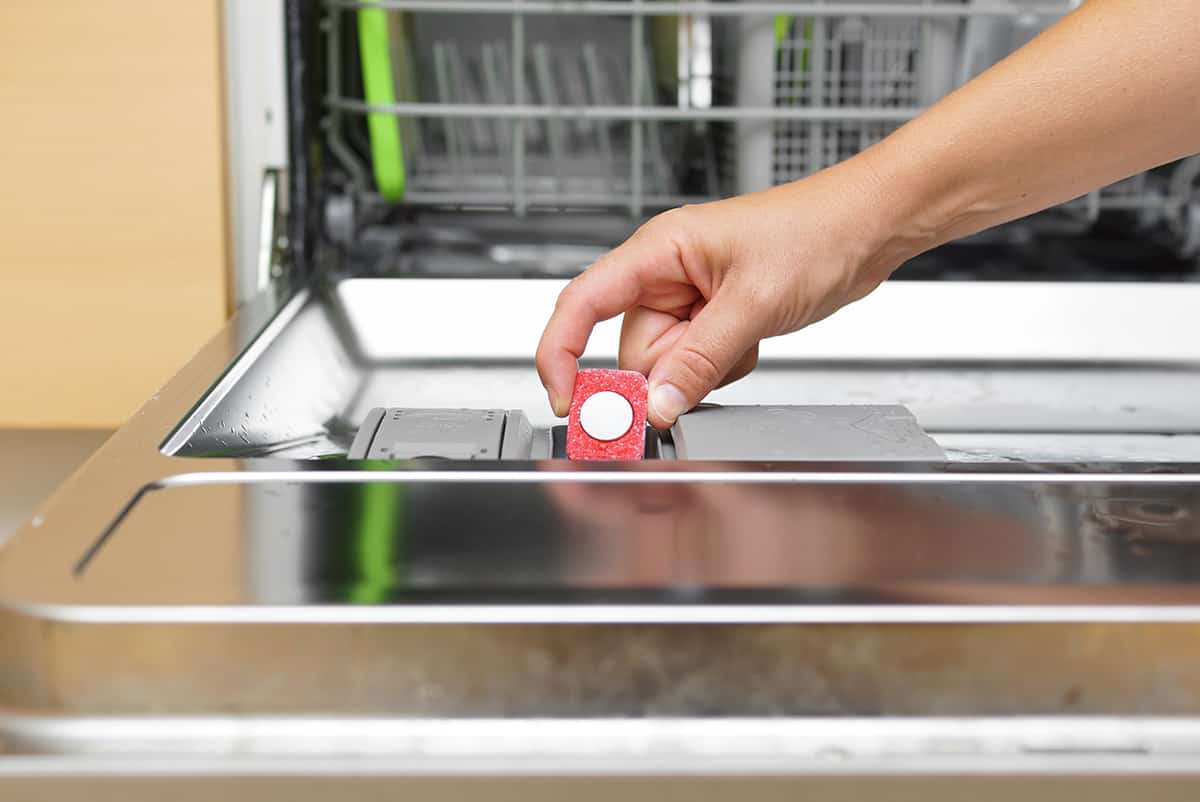
Never, under any circumstances, use liquid dish soap in a dishwasher. Dishwasher detergent does not froth up, so there’s no risk of suds getting into places they’re not meant to be. The same cannot be said for dish soap, which will immediately turn into a bubbly mess.
But that’s not all—you also need to pay attention to the type of dishwasher detergent your dishwasher was designed to use. Like many of life’s questions for dishwashers, you can find the details in the owner’s manual. And when in doubt, stick to powder detergent!
As an added tip, make sure you use the correct amount of detergent for the best results!
4. Load the dishwasher properly
Loading your dishwasher the right way won’t just increase the chance of cleaner dishes, but it also means you won’t have to run your dishwasher nearly as often. If your dishes come out greasy, the first thing many people think of doing is running another cycle. This is a no-no.
Whenever you use your dishwasher, follow the instructions in the manual regarding how to load the racks, avoid overcrowding them, and select the most appropriate wash cycle (hint: the normal wash cycle usually works best for nearly all situations).
5. Check for debris on the heating coils once a month
The heating coils are responsible for raising the temperature of the water to a sanitizing level. They don’t usually get covered in debris, but if you wash plastic objects in your dishwasher, you should check that there isn’t plastic residue on the coils.
If the coils become coated in debris, they may prevent the tub’s water from heating up, leaving your dishes still dirty or greasy to the touch. This will force you to run another cycle, further wearing down the dishwasher’s internal components needlessly.
6. Use the dishwasher up to 5 times a week
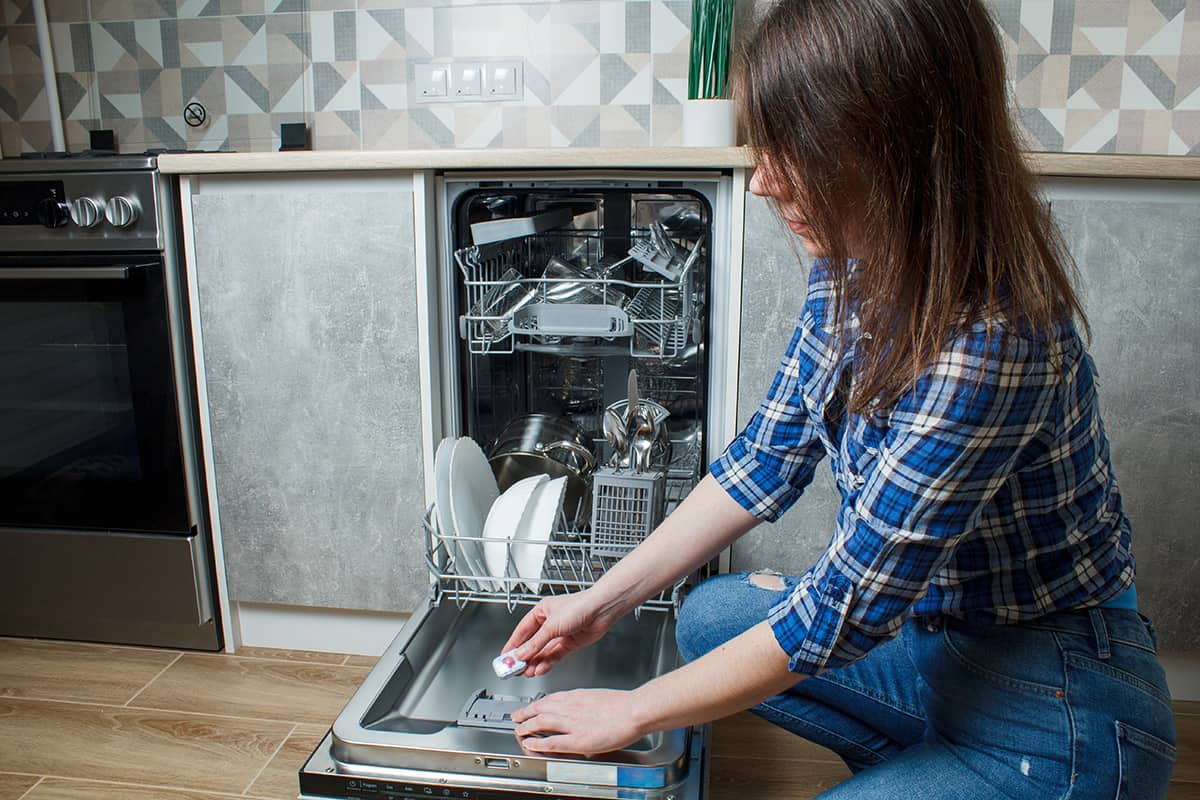
So far, I’ve told you that running your dishwasher can actually cause it to wear down. While this is true, there’s also such a thing as using your dishwasher too infrequently.
The magic number of times you should run your dishwasher is 5 times per week, each time with a full load. This may mean waiting for the following day before hitting the start button, but washing a full load is always preferable to a half or quarter load.
There are practical reasons for running your dishwasher 5 times a week, including saving energy, water, and time. In terms of longevity, keeping your dishwasher running can prevent the gasket and internal components from drying out.
That’s not to say you can’t run a half load once in a while, especially during special events like hosting a party. However, in terms of everyday use, you shouldn’t use the machine every day.
How Long Does a Dishwasher Last?
The average lifespan of a dishwasher is around 9-10 years, but with proper maintenance and care, it can last longer. However, you should always think conservatively when guesstimating how long an appliance will last since there are so many factors that can affect its lifespan. Some of those factors are as follows:
1. Frequency of use
Dishwashers are built to withstand regular use, but overuse or misuse can lead to wear and tear on the internal components, which can cause them to fail. Frequent use of the dishwasher can also lead to clogs in the spray arms, filters, and other parts, which can cause poor cleaning performance or even leaks.
2. Construction quality
The quality of the dishwasher can have a significant impact on its lifespan. A dishwasher made with high-quality materials and components is likely to last longer than one with cheaper materials.
3. Irregular maintenance
Irregular maintenance can cause damage to the dishwasher’s internal components, such as the motor or pump, which can lead to premature failure. Regular cleaning and maintenance, such as checking and replacing filters and using the appropriate detergent, can help prevent these issues and extend the lifespan of the dishwasher.
4. Water quality
Hard water can cause mineral buildup in the dishwasher, which can lead to clogs and other problems that may shorten the lifespan of the dishwasher. Using a water softener or water filtration system can help protect the dishwasher and extend its lifespan.
5. Type of use
Heavy use or misuse of a dishwasher can shorten its lifespan. For example, overloading the dishwasher, using the wrong type of detergent, or using the wrong settings can lead to damage and wear and tear on the dishwasher’s internal components.
When to Replace Your Dishwasher

When your dishwasher hits the decade mark, that’s usually a tell-tale sign that you need to upgrade your dishwasher to a younger, hotter model. After all, the latest models will come with a wider range of features and use much less electricity.
Apart from age, keep an eye out for the following signs that indicate your dishwasher is past its prime:
1. Unfixable leaks
If you notice water leaking from the dishwasher, this could be a sign of a major problem that requires a replacement. Leaks can lead to water damage and other problems, so it’s important to address them as soon as possible.
2. Rust
Rust can form on the interior of the dishwasher due to water leaks, damage to the protective coating, or age-related wear and tear. Even small amounts of rust can cause damage to the dishwasher’s internal components, and if left untreated, it can spread and cause more significant damage. If you notice signs of rust in your dishwasher, it’s essential to address the issue promptly. In some cases, cleaning and repainting the affected area may be a temporary fix, but in many cases, it may be more cost-effective to replace the dishwasher altogether.
3. Poor cleaning performance
If your dishwasher is not cleaning dishes properly, it may be due to clogs or damage to the spray arms, filters, or other internal components.
These issues can lead to food debris and other materials being left on the dishes, resulting in poor cleaning performance. If you have tried cleaning the dishwasher and checking and replacing the filters but are still experiencing poor cleaning performance, it may be time to consider replacing your dishwasher.
4. Loud noises
If you notice that your dishwasher is making unusually loud noises during the wash or rinse cycles, it could indicate that there is a problem with the internal components, such as the motor or pump. These parts may be worn out or damaged, which can cause the dishwasher to make loud grinding, clunking, or whirring sounds. Have a technician inspect your dishwasher and diagnose the problem. In many cases, they’ll advise replacing the dishwasher altogether.
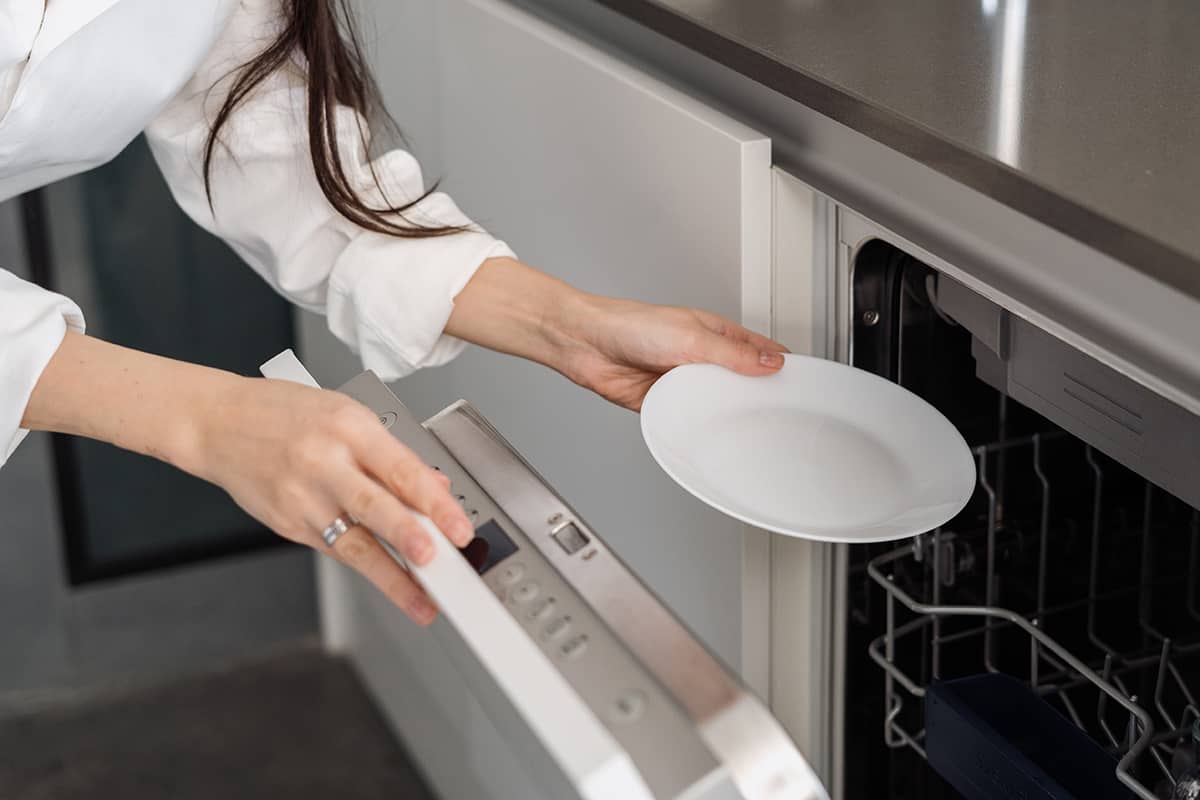
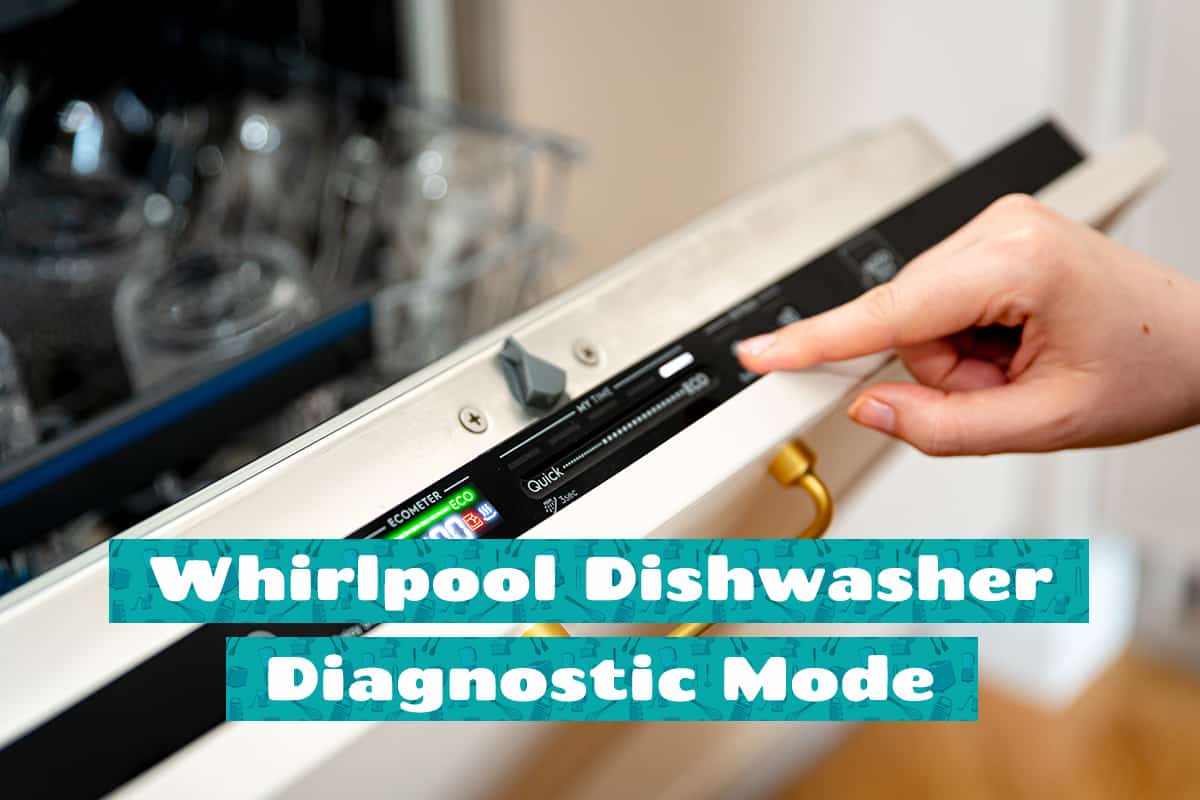

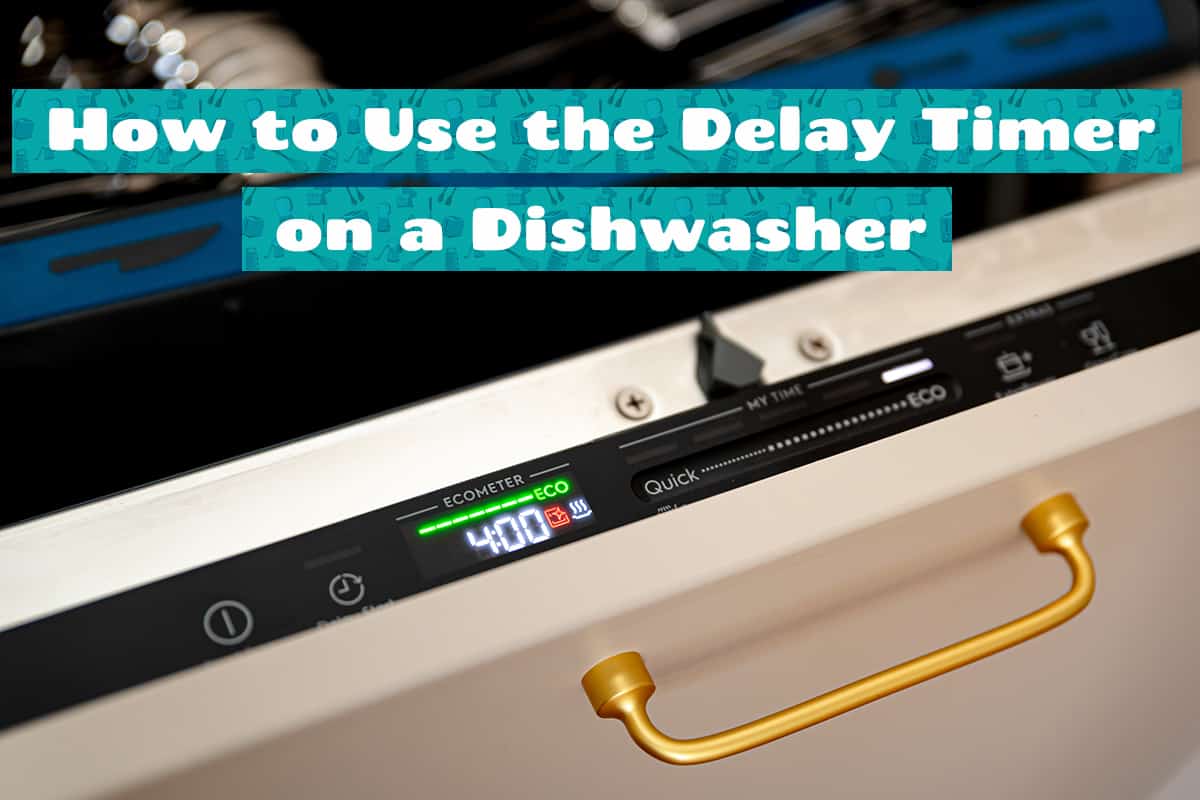
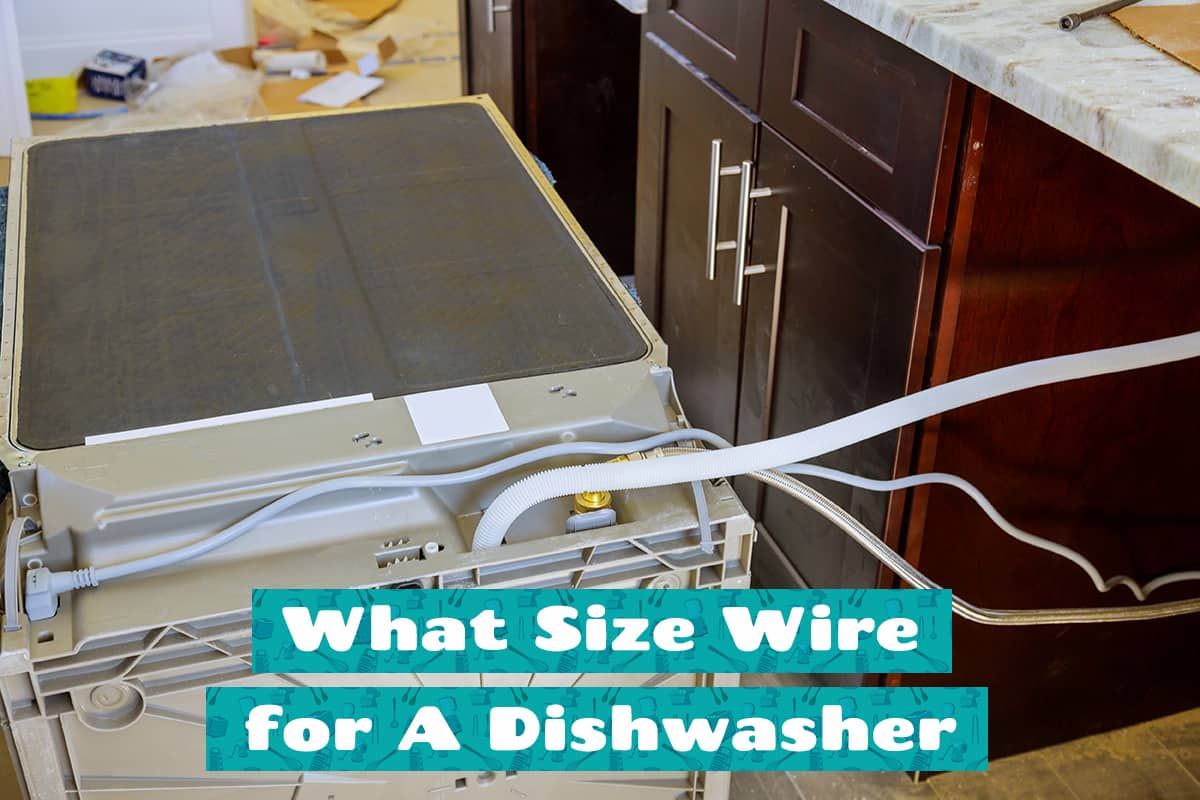
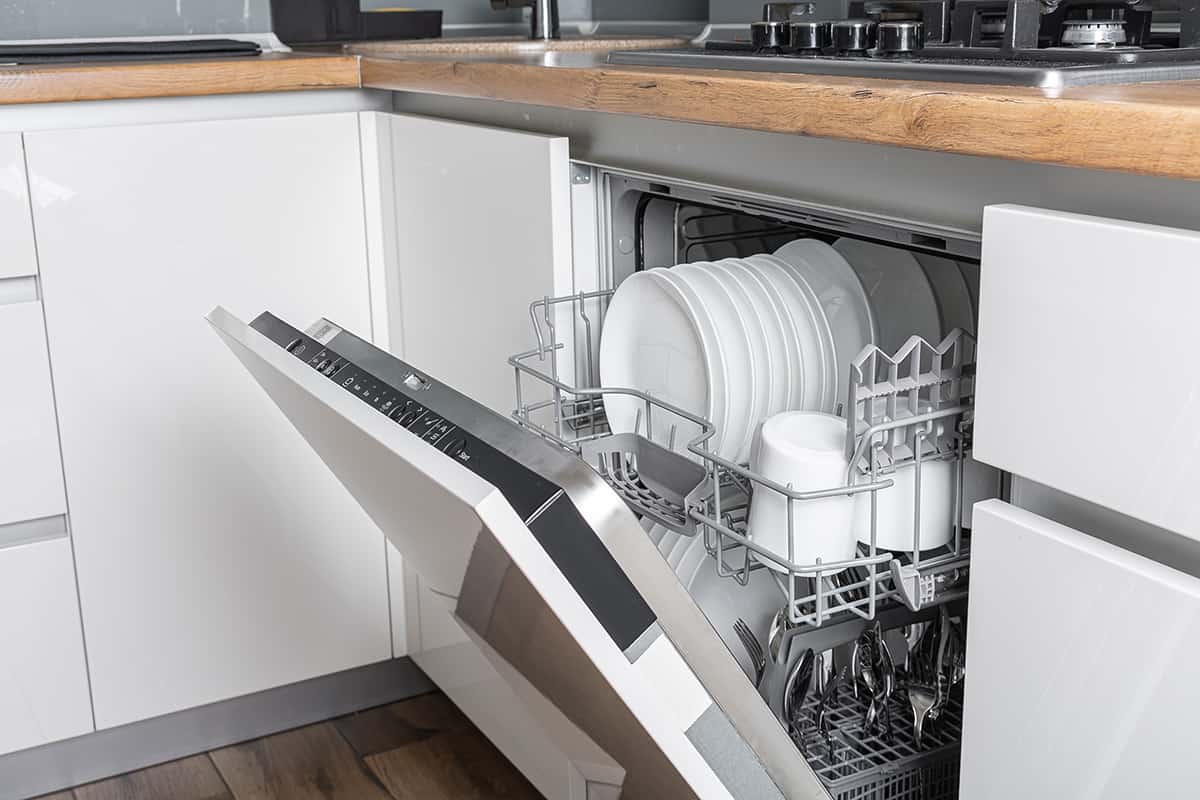

Leave a Reply